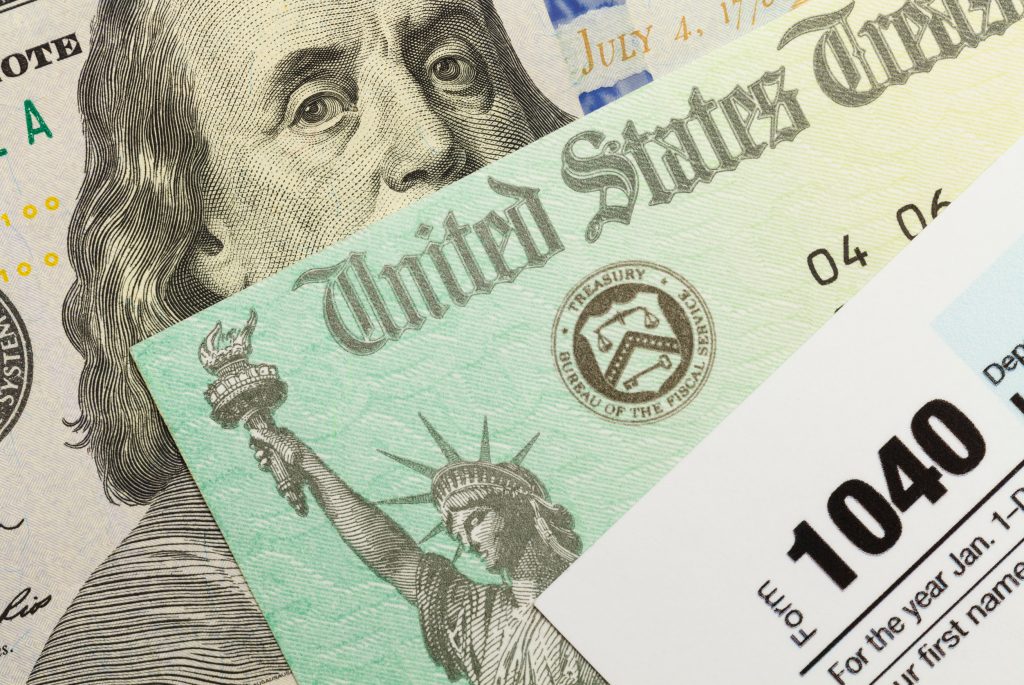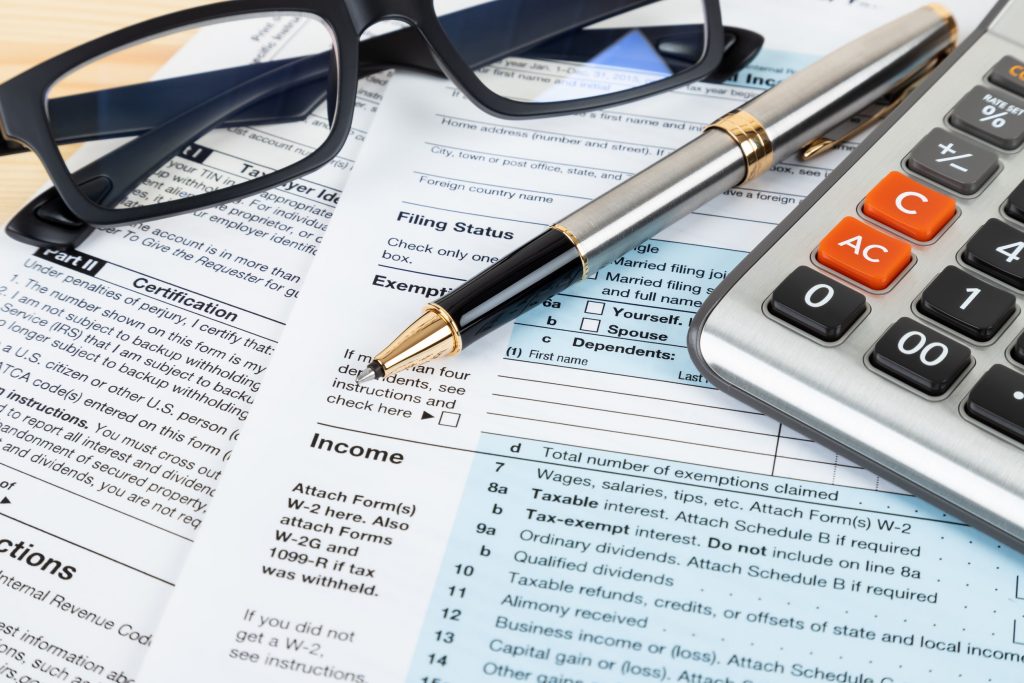Every year in Arizona, millions of taxpayers look forward to getting a tax refund. But what happens to that money if you fall on hard times and decide to file for bankruptcy? Well, the answer depends largely on when you file for bankruptcy and what actions you take beforehand to protect your assets.
Find out more about the complicated relationship between bankruptcy and tax refunds from the Arizona bankruptcy attorneys at Lerner and Rowe Law Group.
Does Arizona Bankruptcy Exempt Tax Refunds?
The United States Bankruptcy Code doesn’t specifically exempt tax refunds from bankruptcy filings, but the federal wildcard exemption does allow debtors to exempt up to $1,325 (plus $12,575 of any unused portion of the homestead exemption) to any property they own—including federal tax refunds. So in theory, you could exempt up to $13,900 in tax refunds from bankruptcy proceedings using the federal wildcard exemption.
However, the federal Bankruptcy Code is just one piece of the puzzle. Under state law, residents are required to use Arizona’s bankruptcy exemptions instead of federal exemptions. And unfortunately, there is no Arizona exemption for tax refunds, nor is there a state-level wildcard exemption. This means that prior years’ tax refunds are not exempt from bankruptcy proceedings in Arizona.
Note: If you have lived in Arizona for less than two years at the time you file for bankruptcy, then you must claim the exemptions provided by the state where you lived for the majority of the 180 days preceding the prior two years. If that state allows you to exempt tax refunds from bankruptcy or use federal exemptions, you may be able to keep your tax refund from a prior tax refund.
What Happens to Non-Exempt Tax Refunds?
If tax refunds aren’t exempt in Arizona bankruptcy proceedings, where does the money go? What happens if you file bankruptcy before or after you’ve already filed your taxes? See how each of these circumstances may affect bankruptcy and tax refunds below.
Tax Refunds in Chapter 7 Bankruptcy
If you choose to file for Chapter 7 bankruptcy, any assets you have may be liquidated in order to pay off as many of your creditors as possible. Any refunds owed to you from prior tax years—even those you haven’t received yet—are considered assets when you file for bankruptcy.
You may be wondering why tax refunds are already considered assets before the money even hits your bank account. This is because tax refunds represent a debt owed to you. Even if the IRS hasn’t cut you a check for last year’s tax overpayment yet, that money is still considered yours in the eyes of the bankruptcy court. For this reason, a tax refund from a prior tax year can be collected by the bankruptcy trustee for distribution to any unsecured creditors—even if you don’t receive the money until well after you’ve filed for bankruptcy.
Prior Year Tax Refunds Go to the Trustee
For example, let’s say you file for Chapter 7 bankruptcy in February 2022. You file your 2021 taxes a month later and receive a $2,700 refund. Because the refund is for 2021, it is technically part of the assets you declared when you started the bankruptcy process. Therefore, the entire refund is under the control of the bankruptcy trustee.
“Future” Tax Refunds Are Prorated
The bankruptcy trustee took your 2021 tax refund—money you really could have used during difficult financial times. But at least you have a 2022 tax refund to look forward to in 2023, right? Well…sort of.
The bankruptcy trustee can take control of your assets as they were when you filed for bankruptcy (in our example, February 2022). Depending on your tax withholding choices, that unfortunately might include any taxes you already overpaid from January 1, 2022 until the date you filed for bankruptcy. Luckily in this case, that’s only about a month’s worth of taxes. The bankruptcy trustee, then, is entitled to a prorated portion of your 2022 tax refund—about 1/12 or 8.3%.
As you can see, timing plays a big role when it comes to bankruptcy and tax refunds. As another example, if you filed for bankruptcy in October 2022 instead of February, the bankruptcy trustee would be entitled to as much as 75% of your 2022 tax refund.
Tax Refunds in Chapter 13 Bankruptcy
Chapter 13 bankruptcy is fundamentally different from Chapter 7. In Chapter 7, your non-exempt assets are liquidated to pay back as much unsecured debt as possible. Afterwards, any remaining eligible debt is essentially wiped out.
During Chapter 13 bankruptcy, your existing debt is restructured into a three to five year repayment plan based on income and other factors. This option usually appeals to those who want to avoid repossession of their home or vehicle and who also have the financial resources to keep making payments.
Unfortunately, although Chapter 7 and Chapter 13 differ in their approach to consolidating and discharging debt, tax refunds are generally considered non-exempt assets in both cases. And because tax refunds are essentially a liquid asset, there’s a good chance a Chapter 13 bankruptcy trustee will put your tax refund towards paying off any unsecured debt you may have or apply the refund to your ongoing repayment plan. Like Chapter 7, this applies to both prior year tax returns and future tax refunds during your bankruptcy.
Is There a Way to Protect My Tax Refund from Bankruptcy?
There’s a silver lining in all of this, which is that you may be able to keep the bankruptcy trustee from taking your much-needed tax refund. One way to do this is to wait until after you have spent your tax refund to file for bankruptcy.
The caveat here is that you have to spend the tax refund on necessary living expenses, such as rent or mortgage payments, car payments or repairs, groceries, clothing, medical care, or education. You cannot use your tax refund to repay one large debt, buy luxury items, or buy gifts for family or friends.
Of course, not everyone is in a position where they can wait to file for bankruptcy until after tax season. Another thing you can do in this case is adjust your tax withholding. This not only allows you to spend more of your money from each paycheck, but also reduces the size of your tax refund which can then be collected by the bankruptcy trustee.
Less commonly, a debtor may be able to keep a tax refund if they can’t afford basic living expenses or face unforeseen hardship, such as major home repairs or medical bills from an unexpected illness or accident. If you’re filing for Chapter 13 bankruptcy, you’ll need to apply for a detailed plan modification to exempt part or all of your tax refund for these purposes. Ultimately, it’s at the discretion of the bankruptcy trustee.
How an Arizona Bankruptcy Lawyer Can Help
If you’re considering filing for bankruptcy, it’s crucial that you first have your finances reviewed by a qualified Arizona bankruptcy lawyer. While it can help provide you with a fresh start, bankruptcy is also a major decision with long-term consequences. From possible impacts on your credit score to whether or not you’ll be able to look forward to next year’s tax refund, a bankruptcy attorney can explain what to expect during the bankruptcy process.
At Lerner and Rowe Law Group, we offer free, no obligation consultations to all prospective bankruptcy filers. Our experienced legal team will evaluate your unique financial situation and lay out all your debt relief options, from Chapter 7 or 13 bankruptcy to debt consolidation.
To get in touch with us and request your free case review, simply call 602-667-7777, connect with one of our LiveChat agents, or fill out this online form.
Wondering how much filing for bankruptcy will cost? Be sure to ask about our affordable payment plans and $0 down bankruptcy.




